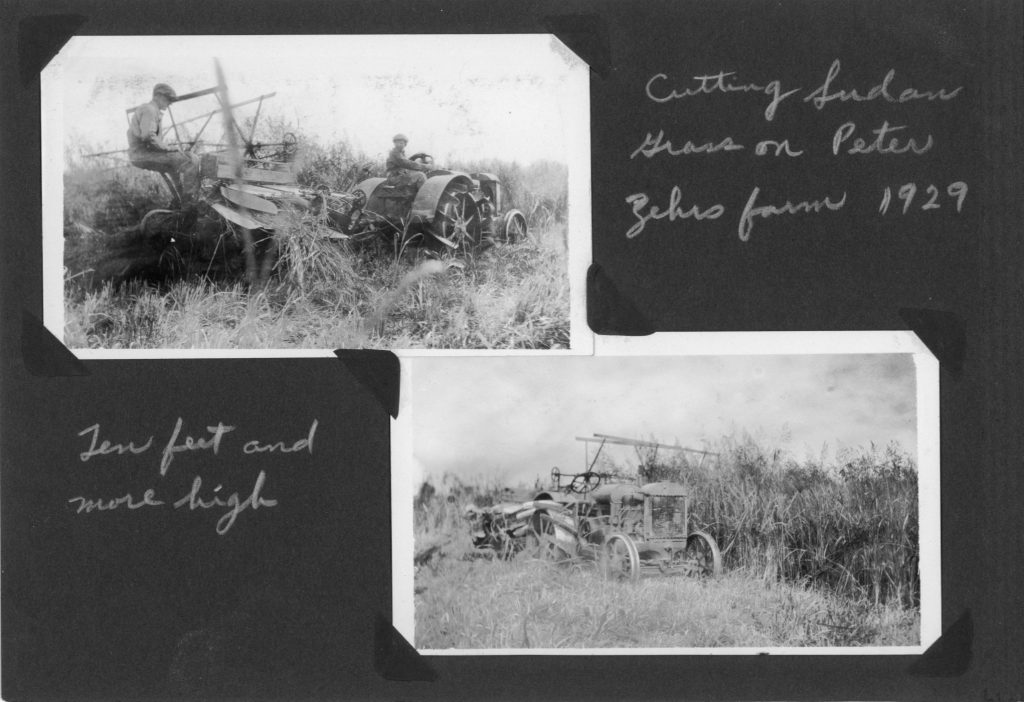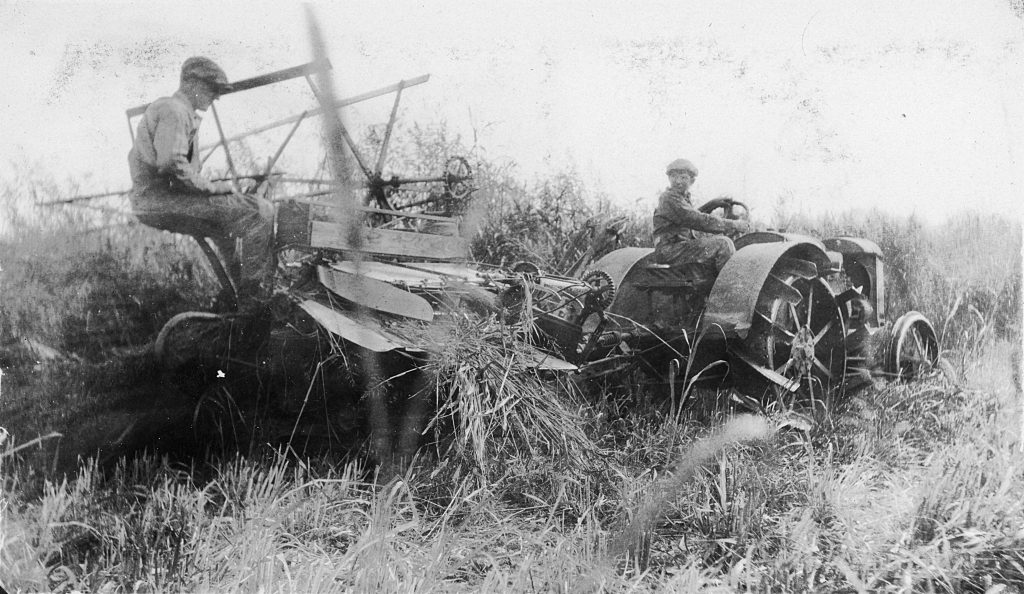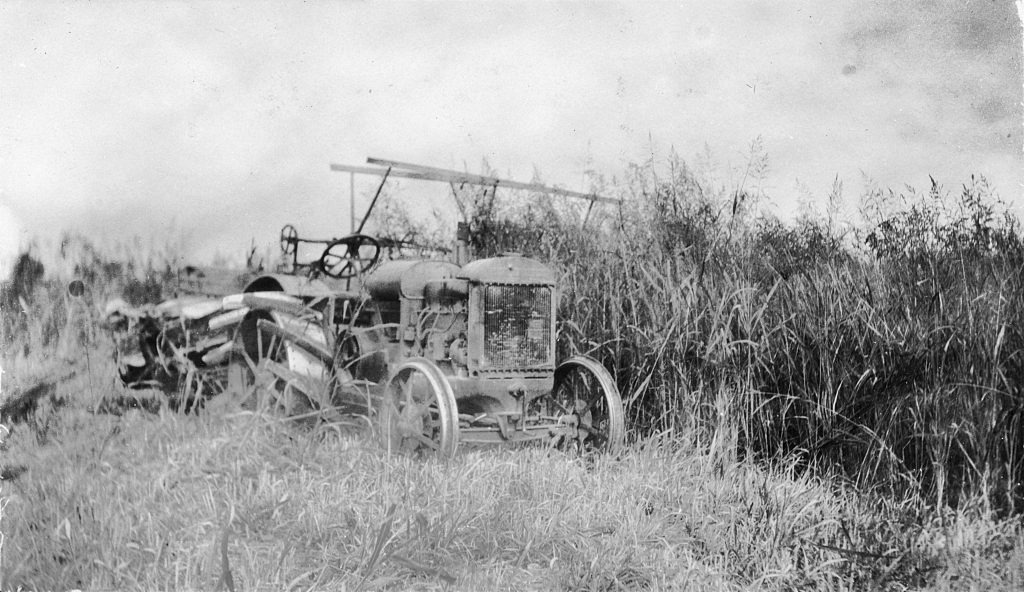This page of Dad’s photo album shows him cutting Sudan grass on the Peter Zehr farm in 1929.

I don’t know whether there is significant Sudan grass cultivation in the Willamette Valley now, but evidently it was not an uncommon crop in the late 1920s and through the 1930s at least. Sudan grass was cultivated primarily for silage or baled as hay for animal feed. There was also some cultivation as a seed crop.
This photo shows Dad operating the mower in a Sudan grass field as it is being pulled behind a tractor. I don’t know the identity of the person operating the tractor, but judging by his apparent age, I suspect it is Peter Zehr’s son Oliver (who was about 14 at the time).

The next photo shows a different view of the tractor and mower, and a better view of the Sudan grass itself. Dad notes that it was “ten feet and more high.”

If you are familiar with the Albany, Oregon area, you will probably know where the Mennonite Home is in southeast Albany. The land on which the Mennonite Home and Mennonite Village sit was part of Peter Zehr’s farm.
When Dad worked for Peter Zehr, he lived with the family. It seems that Oliver liked to play tricks, and Dad was a frequent target of those tricks. Dad, being the competitive person he was, was determined to thwart all Oliver’s attempts at tricking him, as he wrote:
…when I was working for Peter Zehr from the spring of 1928 to the fall of 1929 it was quite interesting because Oliver was always trying to pull a trick on me so I was also always trying to make his tricks react on himself.
I won’t include all Dad’s “Oliver stories” in this post, but here is one:
When I went there I had a pair of high top leather boots with long leather laces. One noon while we were eating dinner [Dad always called the noon meal “dinner” and the evening meal “supper”] I thought I felt something around my shins. Of course the first thing I noticed was that Oliver was not in his place. I hadn’t noticed it before. I didn’t move to alert him to the fact that I had become aware that he was there. I looked at my water glass. It was about one half full–too much to throw at him so I drank it down to one quarter full. Up ‘til now no one was aware of what was going on. I estimated about where his head might be, dropped the glass down beside my chair and aimed the water at that spot and let it fly. Apparently the water found its mark and he let out a loud yell. Then all around the table heard his loud yell and were startled and wondered what was going on. Since Oliver was the one who made the noise he was asked what was the matter and he had to tell what was going on.
Dad was to be paid $60 per month (plus room and board, apparently) while at Zehr’s. Part of the reason he went to California in fall 1929 was because he wanted to leave there. He did not ever elaborate (that I am aware of) on any other reasons for that, but one of them was apparently money. Dad was not being paid as agreed. Dad writes:
I never did get all my money from Zehrs. When we built our house at 406 N. Geary in Albany, we settled at a discount.
This was over five years after he left Zehrs. Dad does not seem to suggest anywhere that Peter Zehr was trying to cheat him—only that he didn’t have the money to pay him. Story of Dad’s life, I’m afraid…